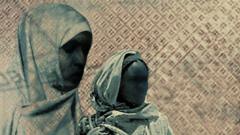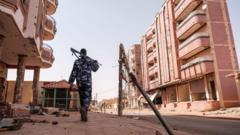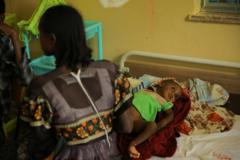As conflict in Sudan escalates, many families, like Layla's and Salma's, have turned to Libya in search of safety, but instead they encounter a nightmarish existence filled with violence, exploitation, and despair.
"Sudanese Women Endure Unspeakable Horrors in Libya's Abusive Refugee Crisis"

"Sudanese Women Endure Unspeakable Horrors in Libya's Abusive Refugee Crisis"
Sudanese women seeking refuge in Libya face severe abuse and exploitation after fleeing violence in their homeland.
In the midst of escalating violence in Sudan, thousands of families, particularly women and children, have sought refuge in Libya only to confront a new nightmare marked by sexual violence, forced labor, and total exploitation. Layla, a Sudanese mother of six, reveals the horrors her family encountered after fleeing Sudan’s brutal civil war, sparked by a power struggle between the military and the paramilitary Rapid Support Forces (RSF) in 2023.
“We live in terror,” Layla whispers over the phone, her voice hushed for fear of evoking the wrath of her exploiters. Like many Sudanese who initially sought safety in Egypt, her family believed transitioning to Libya would provide better opportunities. Instead, upon arrival, traffickers held them hostage, subjected them to beatings, and extorted more money from them before relenting after three harrowing days.
Despite securing a room and settling down, Layla endured the agony of losing her husband and witnessing her daughter being raped. “My daughter was threatened with harm against her younger sister if she spoke out,” she recounts with a trembling voice that betrays her utter helplessness.
As the war in Sudan continues, millions flee their homes – more than 12 million so far – with Libya now sheltering over 210,000 Sudanese refugees. Many women voiced their disillusionment, having anticipated safety, only to confront brutal realities. Salma, another Sudanese mother, described her experience of being imprisoned in a trafficker-run warehouse for nearly two months, where she and her children suffered relentless violence.
“Sometimes I wished we would all die together. I could think of no other way out," Salma said, detailing the horrific abuse she endured and the trauma inflicted on her children. After managing to escape captivity, she found herself living in squalor, begging for scraps while fearing for her children’s survival.
Jamila, a woman who fled Darfur years prior, recounted the gang rape of her daughters after seeking a cleaning job for them. Tragically, complications arise when survivors turn to local law enforcement for help, as they frequently face further victimization due to their refugee status.
Hanaa's plight mirrors the peril faced by many Sudanese women in Libya, having been kidnapped and assaulted at gunpoint before being detained in a facility where she witnessed horrific abuses against young men.
The dire circumstances have led international organizations like Amnesty International and Médecins Sans Frontières to decry Libya's laws and practices, which perpetuate violence against migrants, treating them as "illegal" and denying them basic human rights.
The heartbreaking accounts continue as these Sudanese women navigate a treacherous landscape rife with danger and suffering. With their hopes shattered, they cling to an uncertain future, full of fear while dreaming of a safe place to call home.






















